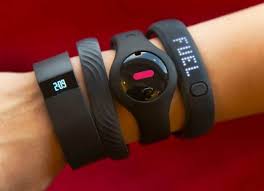
Breaking News
 In my new documentary, Never in America, we pull back the curtain on one of the darkest corners...
In my new documentary, Never in America, we pull back the curtain on one of the darkest corners...
 I just watched what they did to the King family in Washington, and I couldn't stop thinking:
I just watched what they did to the King family in Washington, and I couldn't stop thinking:
 The Superfood They Turned Into a Weed: Why Is It Illegal to Grow This?
The Superfood They Turned Into a Weed: Why Is It Illegal to Grow This?
 Rep. Marjorie Taylor Greene details ''death threats directly fueled by President Trump'
Rep. Marjorie Taylor Greene details ''death threats directly fueled by President Trump'
Top Tech News
 Build a Greenhouse HEATER that Lasts 10-15 DAYS!
Build a Greenhouse HEATER that Lasts 10-15 DAYS!
 Look at the genius idea he came up with using this tank that nobody wanted
Look at the genius idea he came up with using this tank that nobody wanted
 Latest Comet 3I Atlas Anomolies Like the Impossible 600,000 Mile Long Sunward Tail
Latest Comet 3I Atlas Anomolies Like the Impossible 600,000 Mile Long Sunward Tail
 Tesla Just Opened Its Biggest Supercharger Station Ever--And It's Powered By Solar And Batteries
Tesla Just Opened Its Biggest Supercharger Station Ever--And It's Powered By Solar And Batteries
 Your body already knows how to regrow limbs. We just haven't figured out how to turn it on yet.
Your body already knows how to regrow limbs. We just haven't figured out how to turn it on yet.
 We've wiretapped the gut-brain hotline to decode signals driving disease
We've wiretapped the gut-brain hotline to decode signals driving disease
 3D-printable concrete alternative hardens in three days, not four weeks
3D-printable concrete alternative hardens in three days, not four weeks
 Could satellite-beaming planes and airships make SpaceX's Starlink obsolete?
Could satellite-beaming planes and airships make SpaceX's Starlink obsolete?
The Wearables Trap: How the Government Plans to Monitor, Score, and Control You

"When the states legalize the deliberate ending of certain lives... it will eventually broaden the categories of those who can be put to death with impunity."—Nat Hentoff, The Washington Post, 1992
Bodily autonomy—the right to privacy and integrity over our own bodies—is rapidly vanishing.
The debate now extends beyond forced vaccinations or invasive searches to include biometric surveillance, wearable tracking, and predictive health profiling.
We are entering a new age of algorithmic, authoritarian control, where our thoughts, moods, and biology are monitored and judged by the state.
This is the dark promise behind the newest campaign by Robert F. Kennedy Jr., President Trump's Secretary of Health and Human Services, to push for a future in which all Americans wear biometric health-tracking devices.
Under the guise of public health and personal empowerment, this initiative is nothing less than the normalization of 24/7 bodily surveillance—ushering in a world where every step, heartbeat, and biological fluctuation is monitored not only by private companies but also by the government.
In this emerging surveillance-industrial complex, health data becomes currency. Tech firms profit from hardware and app subscriptions, insurers profit from risk scoring, and government agencies profit from increased compliance and behavioral insight.

 First totally synthetic human brain model has been realized
First totally synthetic human brain model has been realized Mach-23 potato gun to shoot satellites into space
Mach-23 potato gun to shoot satellites into space

